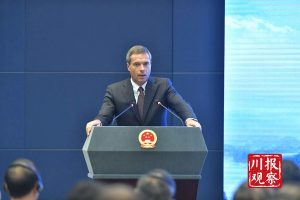Unknown to many, the Nigeria Extractive Industries Transparency Initiative (NEITI) was set up in 2004 to ensure due process, transparency and accountability in payments by the companies and revenue receipts by the federal government. Nigeria was one of the first oil-producing developing countries to engage with the EITI, enacting the Nigeria EITI Act and creating a law devoted to improving transparency, accountability and good governance through EITI implementation.
The World Bank in June 2020 published, “In recognition of NEITI’s role in the public discussion on the oil and gas sector governance, the EITI Board commended Nigeria’s efforts to use the EITI as a key multi-stakeholder consultation platform to proactively drive the natural resource governance debate and as a tool for reforms in government and extractives company systems. The second Validation confirmed Nigeria’s efforts to use the EITI as a crucial diagnostic of oil and gas industry oversight to support reforms of state participation, license management and off-budget revenues.”The Extractive Industries Transparency Initiative (EITI) is the global standard to promote the open and accountable management of oil, gas and mineral resources.
According to its website, NEITI is guided by the belief that a country’s natural resources belong to its citizens, the EITI has established a global standard to promote the open and accountable management of oil, gas and mineral resources. The EITI Standard requires the disclosure of information along the extractive industry value chain from the point of extraction, to how revenues make their way through the government, and how they benefit the public. By doing so, the EITI seeks to strengthen public and corporate governance, promote understanding of natural resource management, and provide the data to inform reforms for greater transparency and accountability in the extractives sector.
In each of the 55 implementing countries, the EITI is supported by a coalition of government, companies, and civil society.NEITI under the leadership of Waziri Adio, has proven itself as a neutral tool for improving governance and contributing to conflict resolution. The Agency has steered clear of political influences, where powerful elites have vested interests in maintaining the status quo at the oil rich zones and has tenaciously pursued transparency and justice. NEITI is a landmark as it has placed a large amount of information on the oil industry in the public domain. The Nigeria Extractive Industries Transparency Initiative (NEITI) speaks out on National issues, especially as they concern transparency and truthfulness to the public. NEITI once expressed concern over the non-implementation of findings and recommendations contained in its independent audit report of activities in Nigeria’s oil and gas industry. President Muhammadu Buhari in February 2016 named Waziri Adio, a cerebral journalist whose career has covered both private and public sectors in the last 24 years as the new Executive Secretary of the agency.He was director of communications at NEITI from May 2007 to June 2008, when he resigned to pursue his second master’s degree in the US. He coordinated the last-minute legislative advocacy that led to the passage and signing of the NEITI bill into law, developed and coordinated the implementation of a result-oriented, post-act communication strategy for NEITI; and initiated constructive engagement with the media and civil society groups to ensure greater visibility for NEITI and nuanced understanding of its work.
From 1993 to 1995, Adio was a reporter with TheNews/TEMPO group known for adopting “guerrilla journalism” tactics during the military era. The publications were targets of harassment and intimidation by security agencies, and the staff had to go underground to be able to operate. They held meetings at bus stops and the national stadium in Lagos as their offices were often under lock and key. He worked at THISDAY, where he was assistant editor, political editor, New York bureau chief, editorial page editor and columnist from November 1995 to August 2003.Adio was the best undergraduate in the faculty of social sciences from his first year in the university, meaning he got the vice chancellor’s scholarship. He was the best student in mass communication every year, from 100 level to 400 level. He was also editor of Unilag Sun, the university’s newspaper, and editor of Masscope, the magazine, both produced by the mass communication department.In July 2009, he set up Think Tank Consult office in Abuja to offer policy communication services. As the lead consultant, he coordinated the provision of crisis-communication support to the Central Bank of Nigeria (CBN) on the reform of the banking sector in Nigeria in 2009 and led the development of advocacy campaign for the federal ministry of agriculture and water resources on efforts to combat the menace of quelea birds in northern Nigeria. Under his watch, NEITI has been a watchdog that has kept track of happenings in the oil and gas/ extractive industry, without any stain to his reputation.




